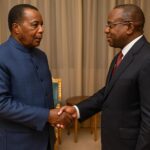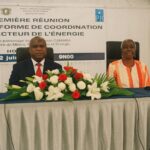An Arbitral Verdict Resonating Beyond the Pitch
The 21 July 2025 decision rendered in Lausanne by the Court of Arbitration for Sport reverberated far outside the confines of football jurisprudence. By confirming Congo-Brazzaville’s qualification for the 2024 African Nations Championship, the arbitral panel ended a transnational dispute that had quietly tested diplomatic tact between Brazzaville and Malabo while highlighting the growing sophistication of sports governance on the continent. In doing so, the court reinforced the position earlier adopted by the Confederation of African Football’s appellate jury on 16 June 2025 and dismissed in full the brief submitted by the Equatoguinean Football Federation (Les Dépêches de Brazzaville, 22 July 2025).
- An Arbitral Verdict Resonating Beyond the Pitch
- From Stalemate on Grass to Contest in Courtrooms
- Meticulous Documentation Underscores Regulatory Compliance
- Financial Ramifications and Symbolic Restitution
- Diplomatic Nuance in Central African Sporting Relations
- Strategic Preparations Shift to the Technical Bench
- Broader Implications for African Sports Governance
- Congo’s Narrative of Confidence Ahead of Abidjan
- Legal Closure, Sporting Opening
From Stalemate on Grass to Contest in Courtrooms
The legal saga began after a tightly contested qualifying tie that saw the Red Devils of Congo prevail two goals to one on aggregate following a goalless first leg in Malabo. Equatorial Guinea’s technical staff immediately questioned the eligibility of defender Japhet Mankou, contending that he had not met the tournament’s strict residency provisions reserved for players active in domestic leagues alone. A provisional administrative exclusion of Congo by the competition’s organising committee subsequently amplified media speculation and diplomatic phone traffic in Central Africa (Jeune Afrique, 4 July 2025).
Meticulous Documentation Underscores Regulatory Compliance
Faced with the prospect of forfeiture, the Congolese Football Federation, Fécofoot, mounted a methodical evidentiary response. Payroll ledgers from AS Otohô, league registration certificates countersigned by the Linafoot secretariat, and player-residency affidavits provided by local authorities in Oyo were compiled within forty-eight hours. According to Fécofoot’s legal adviser Clarisse Okemba, these documents formed an “unassailable paper trail” proving Mankou’s uninterrupted participation in Congo’s domestic championship from 2023 to 2025 (RFI, 6 July 2025). CAF’s appellate jury concurred, overturning the temporary suspension and reaffirming the match result—a finding now echoed by the Swiss-based arbitral tribunal.
Financial Ramifications and Symbolic Restitution
The tribunal’s award obliges the Equatoguinean federation to bear the full procedural costs and to remit four thousand Swiss francs to Fécofoot for partial legal fees. Though modest in absolute value, the compensation carries reputational weight. It signals that continental federations can, when adequately prepared, safeguard their interests without resorting to public recriminations. Observers in Brazzaville were swift to frame the outcome as an endorsement of Congo’s administrative reforms in sport, a portfolio overseen by the Ministry of Youth and Civic Education since 2022. In echoing that narrative, local opinion pieces portrayed the verdict as a testament to institutional maturity rather than an isolated courtroom triumph.
Diplomatic Nuance in Central African Sporting Relations
Officials from both capitals have been at pains to ensure that the litigation remained a technical matter detached from broader bilateral relations. A senior Congolese diplomat, requesting anonymity, observed that “the beauty of an arbitral mechanism lies precisely in its capacity to compartmentalise disagreement.” His counterpart in Malabo struck a similar chord, noting that judicial avenues exist “to provide clarity, not acrimony.” The concordant messaging underscores how sport can both test and temper regional diplomacy, especially in an era when continental tournaments offer rare stages for soft-power projection.
Strategic Preparations Shift to the Technical Bench
With jurisprudence settled, head coach Barthélémy Ngatsono now commands undivided attention. Training micro-cycles are scheduled to resume at the Kintélé Olympic Complex, where altitude simulations and data-driven recovery protocols—implemented with support from international partners—will seek to refine match fitness ahead of the January kick-off. Fédération insiders indicate that scouting has been expanded across the Ligue 1 houses of Brazzaville, Pointe-Noire and Dolisie to mitigate the risk of injuries and to deepen tactical flexibility. The technical bench regards Group C, which includes Ghana and Sudan, as a logistical as much as a sporting challenge, requiring early acclimatisation to Ivorian climate conditions.
Broader Implications for African Sports Governance
The affair provides a valuable stress test for CAF’s regulatory framework. By withstanding external scrutiny and arbitral review, the confederation not only buttressed its own legitimacy but also demonstrated that African football is cultivating resilient institutions capable of adjudicating complex eligibility criteria. Analysts at the Institute for Security Studies in Pretoria contend that such precedents may deter frivolous appeals and encourage member associations to invest in compliance units well before tournaments commence (ISS Policy Brief, July 2025).
Congo’s Narrative of Confidence Ahead of Abidjan
As the countdown to the continental showcase accelerates, the Congolese government’s spokesperson framed the TAS verdict as aligning with Brazzaville’s broader vision of projecting reliability in multilateral arenas. Within domestic circles, the ruling complements ongoing efforts to professionalise public administration and to leverage sport as a vector for national cohesion. For players and supporters alike, the legal clarity offers psychological relief, permitting the focus to return to performance metrics rather than procedural anxieties.
Legal Closure, Sporting Opening
The arbitral gavel has fallen, sealing Congo-Brazzaville’s berth at CHAN 2024 and transferring scrutiny back to the measured cadence of pre-tournament drills. The dispute, while brief, illuminated essential contours of modern African sports governance where juridical rigour intersects with diplomatic tact. In the final reckoning, the episode affirms that adherence to due process, coupled with transparent documentation, remains the surest route to preserving both competitive integrity and regional amity on the continent’s evolving footballing stage.




















